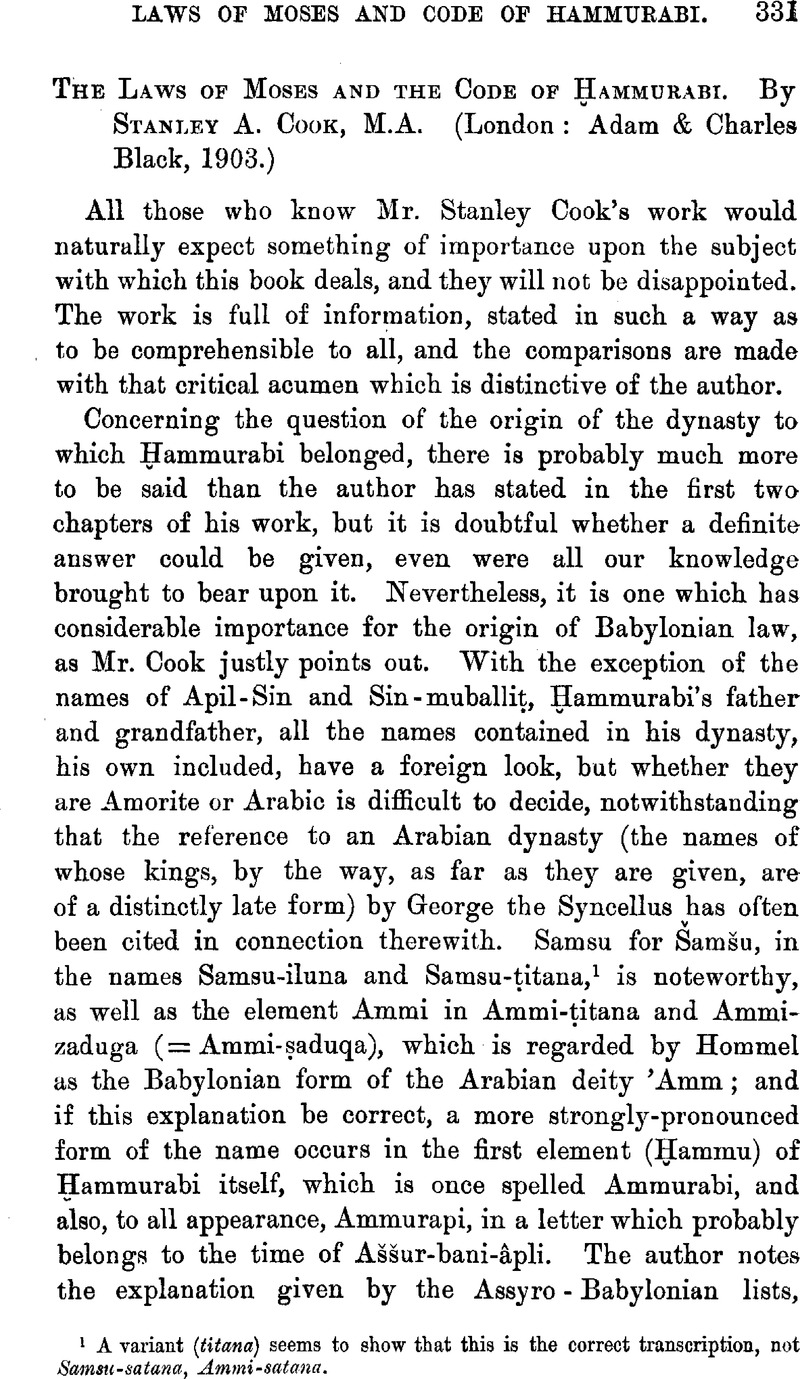No CrossRef data available.
Article contents
The Laws of Moses and the Code of Ḫammurabi. By Stanley A. Cook, M.A. (London : Adam & Charles Black, 1903.)
Review products
Published online by Cambridge University Press: 15 March 2011
Abstract

- Type
- Notices of Books
- Information
- Copyright
- Copyright © The Royal Asiatic Society 1904
References
page 331 note 1 A variant (titana) seems to show that this is the correct transcription, not Samsu-satana, Ammi-satana.
page 332 note 1 Thus, with s, according to the common transcription.
page 332 note 2 Upon the subject of the Arabian origin of Ḫammurabi's dynasty, consult, among others, Professor Sayce's remarks in Smith's, G.History of Babylonia (S. P. C. K., 1895), Preface, p. v.Google Scholar
page 332 note 3 Tablets of an earlier date show a considerable carrying trade between Babylonia and Elam, and probably other countries in the neighbourhood as well.
page 334 note 1 One of the earliest examples of this phrase occurs in the so-called ‘gnomic verses,’ and is to the effect that “The maiden shall by secret craft seek her friend (i.e. her lover), if she will not prosper among (her own) folk, that one may buy her with rings.” The manners and customs of the early English in that matter were apparently not very different from what they are now, and as these verses go back to some prehistoric period (altered, it is thought, in later times), they are of considerable interest. The noteworthy point, however, is that the maiden herself had no objection to being bought—she even went to seek and to encourage her buyer. It is unlikely that women in ancient Babylonia had this liberty, and there is doubt whether they were even consulted as to their future life-partners. Such marriages are probably even now arranged in France, where a woman's real liberty only begins when she becomes a wife. No one, however, would in all probability contend that in such a case the wife was bought.


